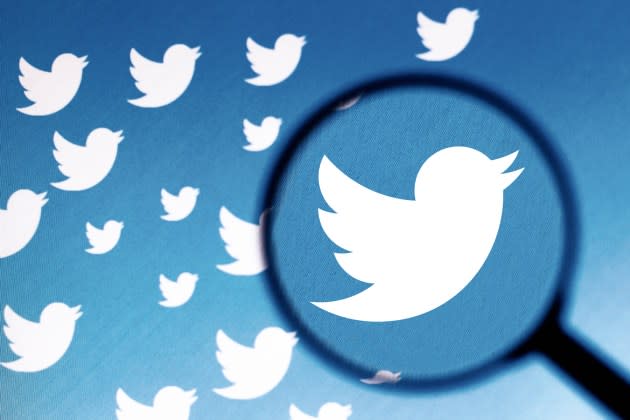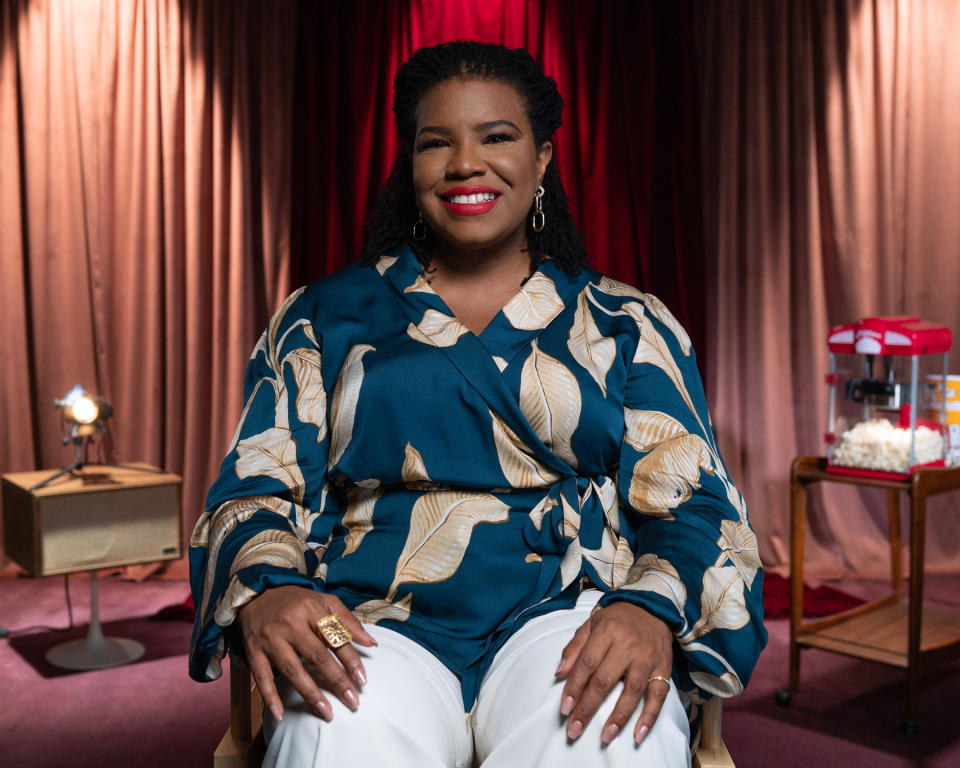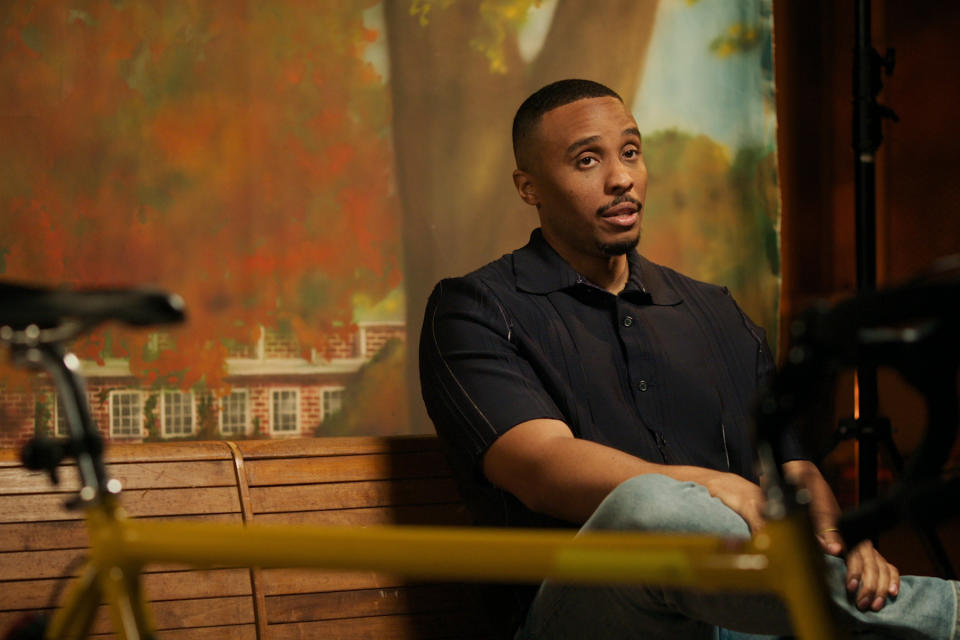‘Black Twitter’ Shows How the Platform Reshaped Our Culture. Where Have Those Voices Gone Today?

When April Reign became part of the loose community of Black users recognized as Black Twitter in 2010, her feed flooded with unfiltered opinions, jaw-dropping confessions, and countless jokes. Early on, she stumbled into #TwitterAfterDark, which littered her timeline with sexual innuendos. A few years later, she followed the “Meet Me In Temecula” saga, where two men hilariously feuded over Kobe Bryant, eventually challenging one another to a fight. As Reign spent late nights scrolling through mood-setting memes, innovative hashtags, and trenchant 140-character commentaries, hanging out on Black Twitter started to feel like being at a family cookout. Soon, her conversations moved from the timeline to the real world: She hosted Brooklyn brunch meetups with online friends based in New York City, some of whom were Oscar winners and award-winning authors. She traveled internationally with people she’d met on Twitter. She even handed the keys to her home to some of her Black Twitter friends.
But ever since Elon Musk bought Twitter in 2022, Reign — who refuses to call the platform by its new name, X — says the once-lively community is more like a nursing home. “Folks come to visit but they don’t stay very long, and the conversations feel kind of dated,” she says. “And then you’ve got the old heads who have been there forever and they’re like, ‘We’re not leaving, tapioca’s at three.’”
More from Rolling Stone
J.K. Rowling Used to Want to Debate Gender. Now She Just Insults Trans People
Far-Right Influencers Celebrate Jerry Seinfeld Once Again Claiming 'PC Crap' Killed Comedy
Tesla Ordered To Recall Cybertrucks Over Accelerator Crash Risk
Reign, an attorney turned activist credited with creating the #OscarsSoWhite hashtag, is one of several members of the elusive coalition of Black Twitter users featured in the three-part docuseries Black Twitter: A People’s History, which dropped on Hulu last week. Based on a 2021 Wired article by Jason Parham, it captures the fervid and often joyful energy of Black Twitter, which for more than a decade has offered the world a trove of timeless memes (Crying Jordan, Supa Hot Fire), can’t-stop-scrolling Twitter threads, and celebrity clapbacks. It also shows how the group drove real social change around racial disparities through viral hashtags (#IfTheyGunnedMeDown, #ICantBreathe) and virtual receipts. Rolling Stone spoke to Parham, director Prentice Penny (Insecure), and Black Twitter veterans on the platform’s impact and how apps like Bluesky, Spill, and Threads have failed to replicate the melanated town square of news analysis and humor.

Before the birth of Twitter in 2006, BlackVoices and NetNoir were flourishing web forums for Black interests. But as the internet evolved, newer social media sites failed to serve Black users as effectively. MySpace was deemed a “ghetto” as more Black users joined up, Meredith Clark, a Black Twitter researcher and professor of communications at Northeastern University, says in the docuseries, while Facebook felt akin to a “digital gated community.” Quickly, Twitter filled the virtual void.
As it gained traction culturally, white users scoured the internet for an invitation: Is there an account you have to follow? Is it a special URL? Although there was no passcode to entry, Black Twitter established a universal language of understanding. Subcategories such as NBA Twitter, HBCU Twitter, and Black Mom Twitter began to sprout within the secret society and captivate a wider audience.
The docuseries’ first episode delves into the beginnings of Black Twitter, marked by brutal honesty, humor, and catchy hashtags, beginning with Ashley Weatherspoon’s 2009 tweet, “#uknowurblackwhen u cancel plans when its raining.” Her early experimentation snowballed into a viral phenomenon and paved the way for numerous hashtags that captured the experience of being Black in America. Think: #ThanksgivingClapback, which reacted to nagging questions from older relatives during the holidays; and #PaulasBestDishes, which lampooned TV chef Paula Deen’s racist past with fictional recipes like “back-of-the-bus biscuits.” As Penny explains it, the platform offered relief from the outside world, where Black people have to code switch or mute part of their identity just to make others feel comfortable.
“Black Twitter was a space that we got to run, be ourselves, and really not have to explain anything,” Penny tells Rolling Stone. “It was one of the few places in America that we got to dictate what the conversations were going to be.”
Before long, Black Twitter had become an index of colloquial jargon and saucy storytelling. The prime example may have been a 148-tweet thread by a young woman named Zola, who unfurled an alternately hilarious and harrowing tale about a road trip she took from Detroit to Florida with a “white bitch” exotic dancer named Jessica. The epic drama had followers rapt, marking a breakout moment for the platform and garnering attention from Missy Elliot, Keke Palmer, Solange Knowles, and Ava DuVernay. It became a feature in this magazine and was later adapted into the A24 film Zola.
Black voices also began to drive conversations around TV’s hottest shows — its users spearheaded #Scandal watch parties, created a subset of Game of Thrones viewers under #DemThrones, spawned mounds of memes about reality-show lightning rods like NeNe Leakes (The Real Housewives of Atlanta) and Tiffany Pollard (VH1’s Flavor of Love). But beyond its impact on the entertainment world, Black Twitter facilitated important conversations around systemic injustice and racial disparities. The docuseries’ second episode documents how the murders of Trayvon Martin, Michael Brown, Breonna Taylor, George Floyd, and other Black people led to social movements, a call to accountability, and powerful hashtags like #SayHerName.
Sometimes, Black Twitter combined its influence in both spheres to produce real-world change. It was amid this cultural reckoning that Reign tuned in to the 2015 Oscar nominations and realized that none of the acting categories included a single person of color. In her disappointment, she tweeted, “#OscarsSoWhite they asked to touch my hair.” The explosion of #OscarsSoWhite, which went viral the following year after a second all-white slate of actors was nominated, eventually led the Academy to diversify its voting body.
“We are much more cognizant of who is involved in making a movie than perhaps we were before #OscarsSoWhite,” Reign tells Rolling Stone. “So, it’s not just, ‘Who are the actors? Who are the faces that we see? Who’s the director?’ It’s also ‘Who are the screenwriters, who is telling the story, and whose story is being told?’”
But for all this progress Twitter has fostered, things have seemingly come to a grinding halt with Musk’s purchase of the app for $44 billion two years ago. The final episode of Black Twitter: A People’s History details Musk’s first 100 days leading the platform, in which he introduced a subscription service, added a “For You” tab to the algorithm-based feed, and restored thousands of previously suspended accounts, including toxic influencer Andrew Tate’s and former president Donald Trump’s. Musk also ended a policy designed to reduce the spread of Covid misinformation.

Reign says these changes, and the removal of guardrails such as reply limitations, have undermined the voices of her Black peers and made discussion around social and political change challenging. “Even if we wanted to have an open conversation about politics and about [the] 2024 presidential and all the way down to local [elections], there are so many bots and bad actors now that it’s incredibly difficult and stifling to attempt to have that conversation,” she says. “I may post something about student loan forgiveness and then I’ve got eight bots below that say, ‘Nudes in bio.’”
Philip Lewis, a Huffington Post editor and Twitter user since 2010, initially joined the platform as a Michigan State University student, raising awareness with his Black Student Alliance about a racial slur within a residential hall. Lewis, who goes by @Phil_Lewis_, says he now posts less frequently and paid for a verified blue check to help counter the spike in fake news on the platform. “Making [the blue check] open to everybody has really transformed how people operate on the platform, to where misinformation now [is] even more rampant than it was before.” With increased chaos on the app, Lewis now prefers to “post and go” rather than engage with other users.
“My Twitter was way more intimate,” Lewis tells Rolling Stone of his early account. “I would have conversations with people that I know, personally, and people that I know through other people. Now, the algorithm makes it so that people are drawn to your account that you never run into. Obviously there’s a “for you” page [and] your Tweets are just boosted into all sorts of different communities.”
In the wake of Musk’s arrival, new social media platforms like Bluesky, Threads, and Spill have jockeyed for the influence and impact that X once had, but have failed to capture the Black Twitter audience, Parham says. Still, he explains, not everyone has left; it’s more that the conversations have been siloed, rather than existing on the main boulevard of Black Twitter. “I think of it more like dead mall energy: The mall is dying, but people are still hanging around the food court, having fun shooting the shit,” Parham says. “It’s tough. It’s really hard to say what’s going to happen to it.”
As the docuseries comes to a close, Parham describes Black Twitter as “an archive of Black history” and “a window into our life.” For a brief period, Black Twitter users were the victors, pushing for accountability and steering pop culture. With a flood of competing social media apps, Black Twitter will likely splinter off into separate forums, Parham says. The next iteration of Black Twitter is up to the internet gladiators to decide.
“It was like the FUBU aesthetic, the news ‘for us and by us,’ and we were giving it to each other outside of CNN, outside of MSNBC,” Parham says of Black Twitter. “I don’t know if that’s as true in the next decade ahead. I don’t know if that’s TikTok, I don’t know if it’s some geotagging platform, I don’t know if it’s some immersive thing that’s going to happen with Apple Vision Pro — I doubt it. But it’s definitely not going to be Twitter.”
Best of Rolling Stone

